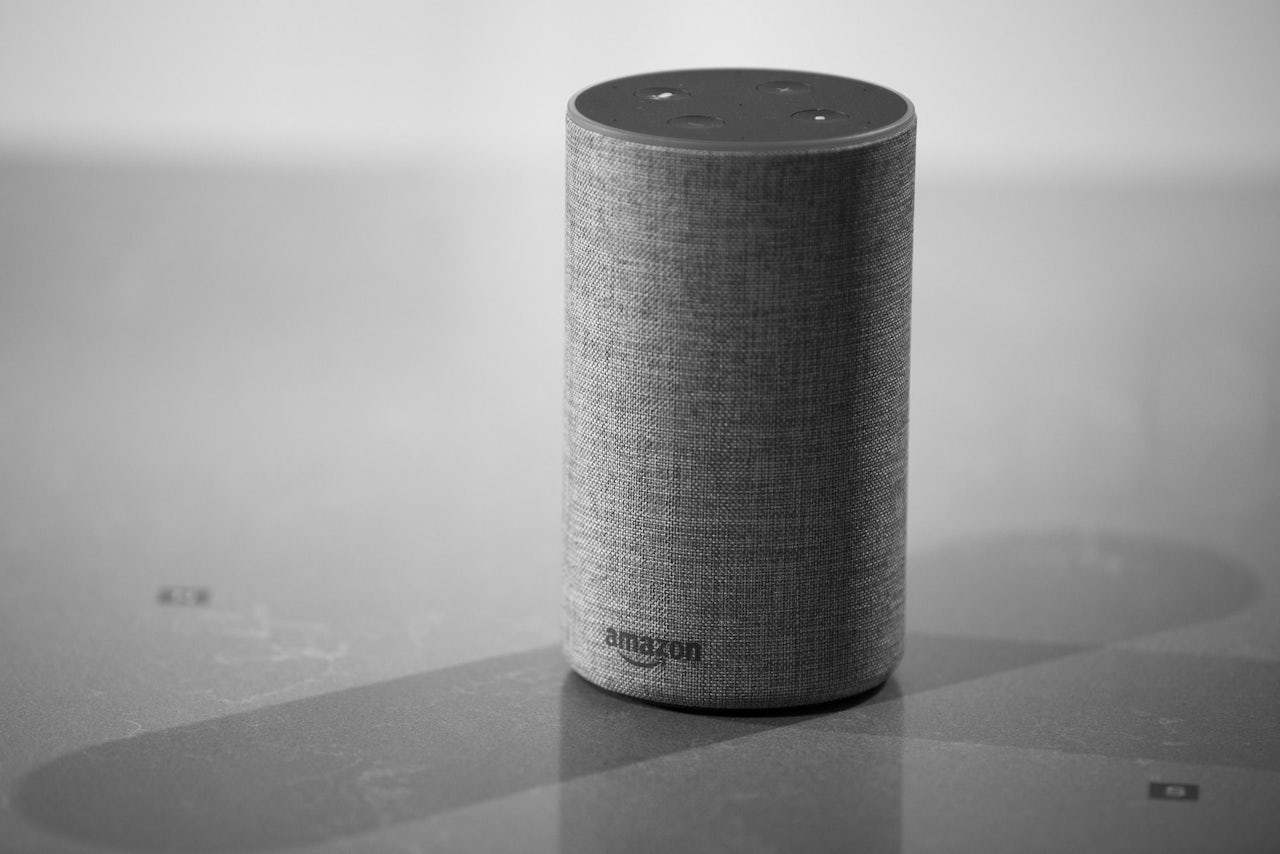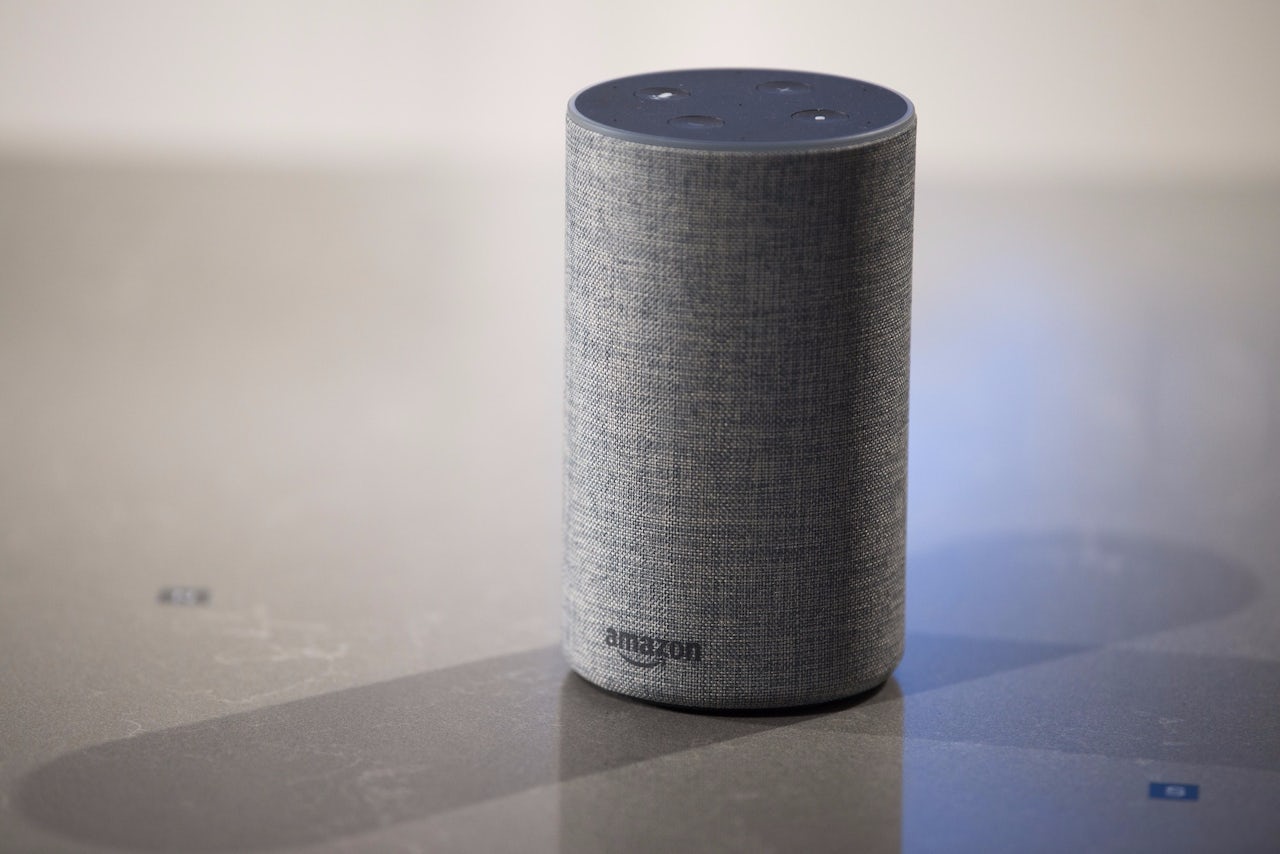For the past three years, the online conglomerate Amazon has been the owner of two separate brands which, in spite of having nothing to do with one another, are both named Alexa.
The first is Alexa Internet, an early titan of web analytics that ranks web domains by popularity (Amazon.com’s worldwide rank, for instance, is currently #10). Alexa Internet was founded in 1996 by Brewster Kahle, who also started the Internet Archive, and Bruce Gilliat, who stayed on after Amazon bought the company in 1999 for $250 million.
Fifteen years later, in November 2014, Amazon announced its digital assistant, a HAL 9000-esque artificial intelligence that powers the Echo line of smart home devices and responds to voice commands to play music, schedule appointments, order products and more. Curiously, the company also christened the digital assistant Alexa.
For the sake of clarity, let’s call the pair “website ranking Alexa” and “digital assistant Alexa.” The names of both brands were reportedly inspired by the ancient Egyptian Library of Alexandria, and the designers of the digital assistant Alexa were particularly drawn to the word’s hard “X” consonant, which is easy for speech recognition algorithms to identify.
Though both are prominently branded as Amazon properties, neither the landing page that served as an announcement of the upcoming Echo in 2014 nor the balmy promotional video that accompanied its market launch mentioned the other Amazon service that had long carried the same moniker.
“Amazon is so big and has so many subsidiaries that most employees don’t know stuff about other parts of the company.”
The press has seldom made a connection between the two. In a rare exception, an interviewer last year asked Dave Limp, a senior Amazon vice president who oversees Alexa, whether there was any tie between the name of the digital assistant and the analytics company. Limp remained tight lipped.
“Not any connection,” he said, with a terse smile.
Marketers use the term “brand twins” to describe the phenomenon in which pairs of unrelated brands share an identical or nearly-identical name, like Domino’s Pizza and Domino Sugar. In those cases, though, the brands almost invariably have different owners. It’s unclear whether a corporation the size of Amazon has ever simultaneously offered two products with the same name, though when Microsoft released its Surface series of tablets in 2012 it borrowed the name from its much-lampooned $10,000 touchscreen table, originally released in 2007, which it then renamed the PixelSense.
That’s the really puzzling thing about the two Alexas. It would make sense if Amazon had launched its own service called Alexa and subsequently made the strategic decision to acquire a company that happened to have the same name. But instead, it was the opposite: First Amazon purchased the website ranking Alexa. Then, more than a decade later, it made the branding decision to call its digital assistant Alexa even though it could have chosen any name. It’s almost like a parent giving a newborn the same name as an older child — though, to be fair, that’s never stopped George Foreman, the celebrity boxer and self-described “grillionaire” who named all five of his sons George.
Initial publicity for Amazon’s digital assistant focused on the Echo itself, the plastic cylinder that connects to the cloud-based Alexa. The landing page that first announced the device, for instance, used the word “Alexa” only twice. But by the following summer, customers had started to refer to Alexa as if it were a person, according to the company. And now, with a growing line of Echo devices on the market, it’s become a catch-all for the entire system — a trend Amazon has leaned into by emphasizing the Alexa brand in its marketing.
Amazon didn’t respond to a request for comment. Kahle, one of the founders of the domain ranking Alexa, told The Outline he wasn’t sure why Amazon might have chosen to give another product the same name as the company he started — though he did appreciate the homage to the Library of Alexandria.
“I don’t know,” he said. “It is a good name, good reference, and they own it.”
Two employees who have worked on the software side of the digital assistant Alexa, speaking on condition of anonymity, described a corporate culture in which teams are so tightly focused on their own projects that they seldom discuss other projects at the web giant.
“Amazon is so big and has so many subsidiaries that most employees don’t know stuff about other parts of the company,” said one.
The other said that the digital assistant Alexa was almost certainly developed under a code name, which would mean there was no opportunity for its developers to weigh in on the name Alexa — though, the employee said, it’s “safe to assume” that Amazon’s marketing and legal teams discussed the branding conflict.
Neither employee recalled seeing evidence of bad blood between the teams behind the digital assistant Alexa and the domain ranking Alexa.
Leadership at the company may have initially anticipated the new Alexa making use of the old. Paperwork filed by Amazon in 2015 with the United States Patent and Trademark Office lists “website ranking based on user traffic” as a service offered by the digital assistant Alexa. But at present, the digital assistant Alexa fails to interact with the domain ranking one to a degree that seems almost intentional. To investigate, we located an Amazon Echo unit and asked it some questions about the other product that bears its name.
“Alexa,” we asked, “what’s the Alexa ranking for Amazon.com?”
“Hm,” it replied, in its sugary synthetic voice. “I don’t know that.”
And what is the Alexa ranking system?
“I’m not sure.”




